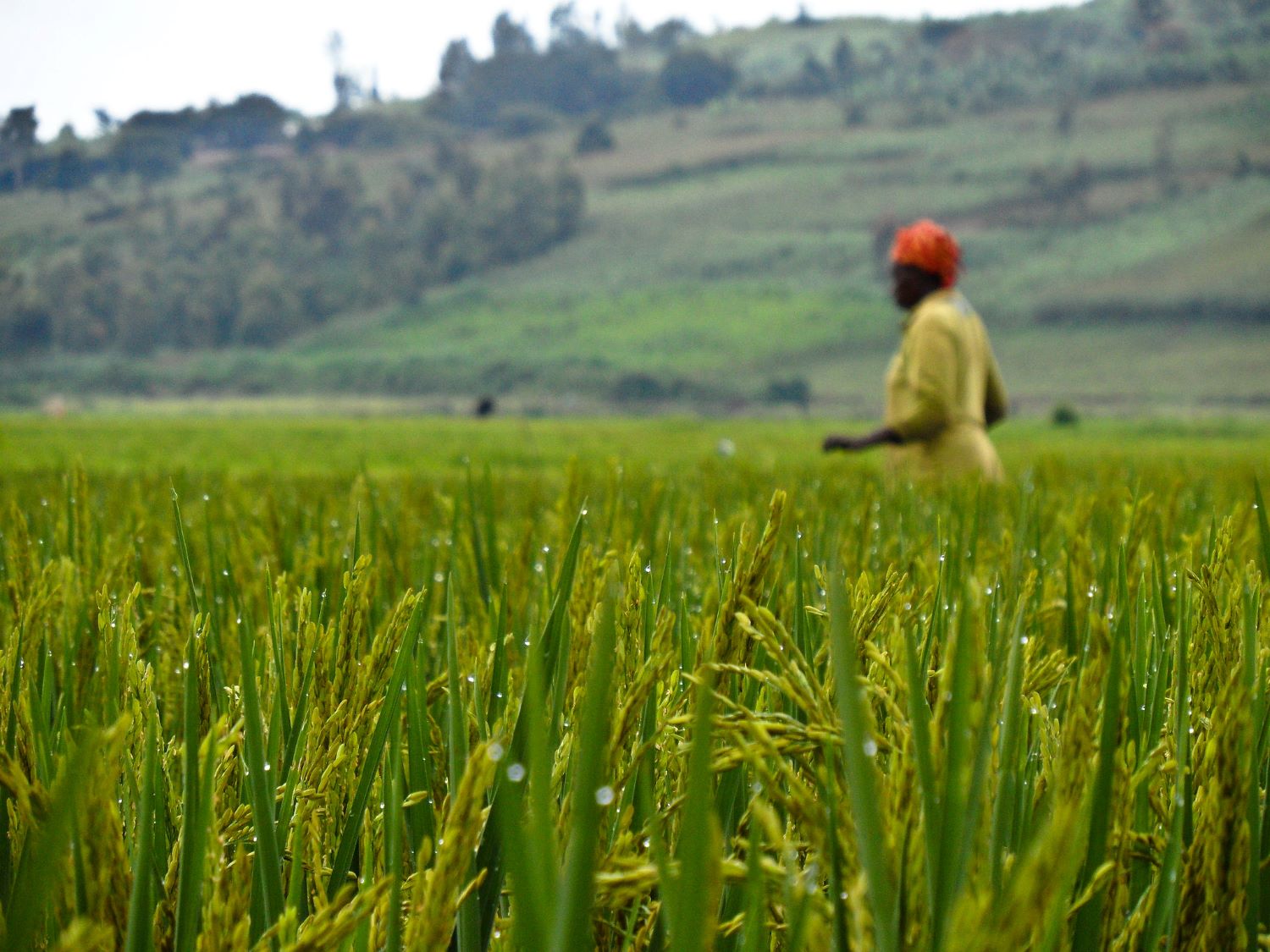IRRI and AfricaRice team awarded prestigious Milken-Motsepe Prize for rice varieties that can survive floods

Highlights:
- The award recognizes the scientific advancement to develop rice varieties that survive for over two weeks under complete submergence.
- These rice varieties can generate up to two tons per hectare additional yield over current farmers’ varieties that die after one week of being flooded.
- This initiative intends to increase the income of farmers and build resilience to climate change.
- Estimates also show that in the next five years, for every dollar invested in this technology, we can expect $43 dollars in return.
- View summary video and presentation.
CALIFORNIA, United States of America (02 May 2023) – The International Rice Research Institute (IRRI) and Africa Rice Center (AfricaRice) team were among the winners in the inaugural Milken-Motsepe Prize in AgriTech, a global competition for innovative solutions to increase economic value to farmers.
The IRRI-AfricaRice team was awarded US$150,000 for their project on flood-proofing Africa’s vulnerable rice farmers’ livelihoods. The Milken-Motsepe Prize in Agritech seeks to incentivize scalable agricultural technology solutions for the problems faced by farmers on small to medium-sized farms in Africa.
The Milken Institute announced the winners during the Milken Institute Global Conference held in Beverly Hills, California on 01 May 2023 evening, Pacific Daylight Time.
Representing the IRRI-AfricaRice team during the event to receive the award is Dr. Venuprasad Ramaiah and Dr. Ajay Kohli of IRRI. Ramaiah is the Head of the International Rice Genebank at IRRI, and the Leader of the Fit-for-Future Genetic Resources Cluster. Kohli is IRRI’s Deputy Director General for Research.
Rice is among the top three most cultivated crops worldwide. Africa, in particular, relies heavily on the crop, making it one of the biggest rice importers. The rainfed lowland ecosystem occupies 40 percent of the total rice farm area in Africa, the highest among all rice-growing ecosystems. Flooding is a major and frequent concern in these areas, affecting productivity, especially in the past decade, and is expected to increase in the coming years, with climate change.
IRRI and AfricaRice team developed new flood-tolerant rice varieties, using modern breeding technologies, with the SUB1 gene. Through the funding from the prize money, the team intends to increase this yield advantage further by adding a complementary gene called SUB2, which could extend the survival rate of these varieties under longer flooding durations.
“We are extremely grateful to the Milken-Motsepe Prize in AgriTech for the recognition of the team’s research and hard work. This inspires us to move forward to expand testing, distribution and large-scale deployment of improved flood-tolerant rice varieties in Sub-Saharan Africa,” said Dr. Baboucarr Manneh, Director General of AfricaRice.
“The science supporting this project has been working successfully in Asia. The wide-scale impact for Asian farmers is felt across the region. This research opens opportunities for African farmers to increase their resilience against climate change. The generous prize can help us to bring this innovation to many more smallholder farmers in Africa and beyond at a faster pace,” said Ramaiah.